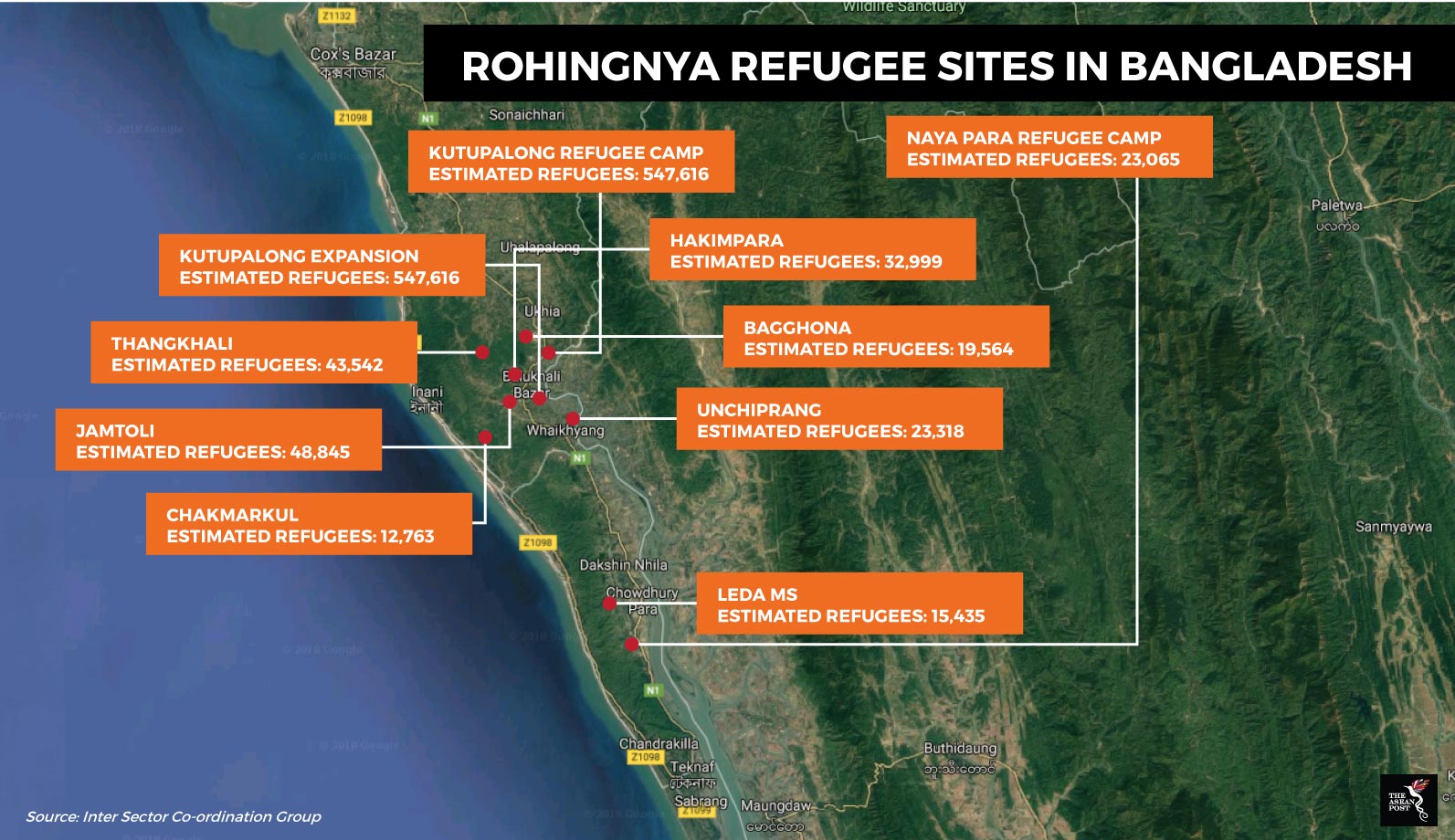The recent repatriation deal between Bangladesh and Myanmar has been put on hold amid widespread criticism from human rights groups. Bangladesh and Myanmar signed a pact in November last year agreeing on the repatriation of its Rohingya refugees. At the time it was believed that more than 620,000 Rohingya refugees fled to Bangladesh to escape the violence faced in the Rakhine state.
However, after a recent biometric registration programme carried out by the Bangladeshi army to aid efforts for repatriation, it was found that Bangladesh is hosting more than a million refugees. While the Rohingya Muslim community has faced decades of systemic oppression in Myanmar, the refugee crisis was caused by increasing violence on the Rohingya in the northern Rakhine state. United Nations Human Rights Council chief Zeid Ra’ad Al Hussein has called the violence on the Rohingya community as “textbook ethnic cleansing”. The United Nations (UN) has also stated the situation is the “world’s fastest growing refugee crisis”.
The repatriation deal between the two countries was supposed to be gradual with Myanmar agreeing to take 1,500 Rohingya each week with Bangladesh aiming to return all Rohingya refugees in the country within two years. Under this agreement, the refugees would have to submit forms with names of family members, previous addresses in Myanmar, birth dates and a statement of voluntary return. According to the Bangladeshi government, the refugees will be transferred from camps near the Bangladesh border to reception centres on the Myanmar side of the border and from there, the refugees will be taken to temporary accommodation at a camp near Maungdaw.

However, after much criticism and fear that the repatriation process will be forced instead of voluntary, the Bangladeshi government has announced that the deal will be put on hold indefinitely.
Amnesty International have highlighted several issues in the repatriation arrangement. Among them is the current climate in Myanmar where anti-Muslim rhetoric is high. Furthermore, the government has refused to acknowledge its role in the problem and the scale of violence. This raises fears that the safety of the Rohingya isn’t guaranteed upon return to Myanmar. The Head of Refugee and Migrants Rights at Amnesty International, Charmain Mohamed said, “Given the scale and horror of the abuses inflicted on the Rohingya, any arrangement on returns must first address the conditions of apartheid that the Rohingya have fled from”.
Another problem raised by Amnesty International on the agreement is the verification process the Rohingya would need to go through. Many of the refugees would have lost their documentation while fleeing military violence and would be unable to verify their right of return. Moreover, many of the Rohingya would be deprived of the documentation since they have long been denied citizenship in Myanmar.
After a recent fact-finding mission by the Association of Southeast Nations (ASEAN), Charles Santiago, the chairman of the ASEAN Parliamentarians for Human Rights (APHR), welcomed the postponement of the agreement and added that the Rohingya refugees had clear demands on the issue of returning to their homeland.
“They want to return to their homeland, but only if their conditions are met. These include citizenship, justice, compensation, and security guarantees. In any discussions of possible repatriation, these and other demands of the refugees must be heeded, and their human rights must be respected,” Santiago said.
Despite criticism, Myanmar shows no signs of guaranteeing the safety of returning refugees. On the issue of granting them citizenship, Myanmar’s government spokesman Zaw Htay said that they would be able to apply “after they pass the verification process” – which has been pointed out by Amnesty International as problematic. The government is also yet to clarify where the Rohingya will be sent to after their return to Myanmar.
“The worst would be to move these people from camps in Bangladesh to camps in Myanmar,” said UN secretary general, António Guterres.
Concluding the ASEAN fact-finding mission to Bangladesh, Santiago called for ASEAN to take action in dealing with the crisis.
“As representatives of the people of ASEAN, we are here today to demand that our governments step up. We therefore call on ASEAN to convene an urgent meeting of foreign ministers of all members states to discuss the crisis and establish a plan of action to resolve it,” said Santiago.
Recommended stories: